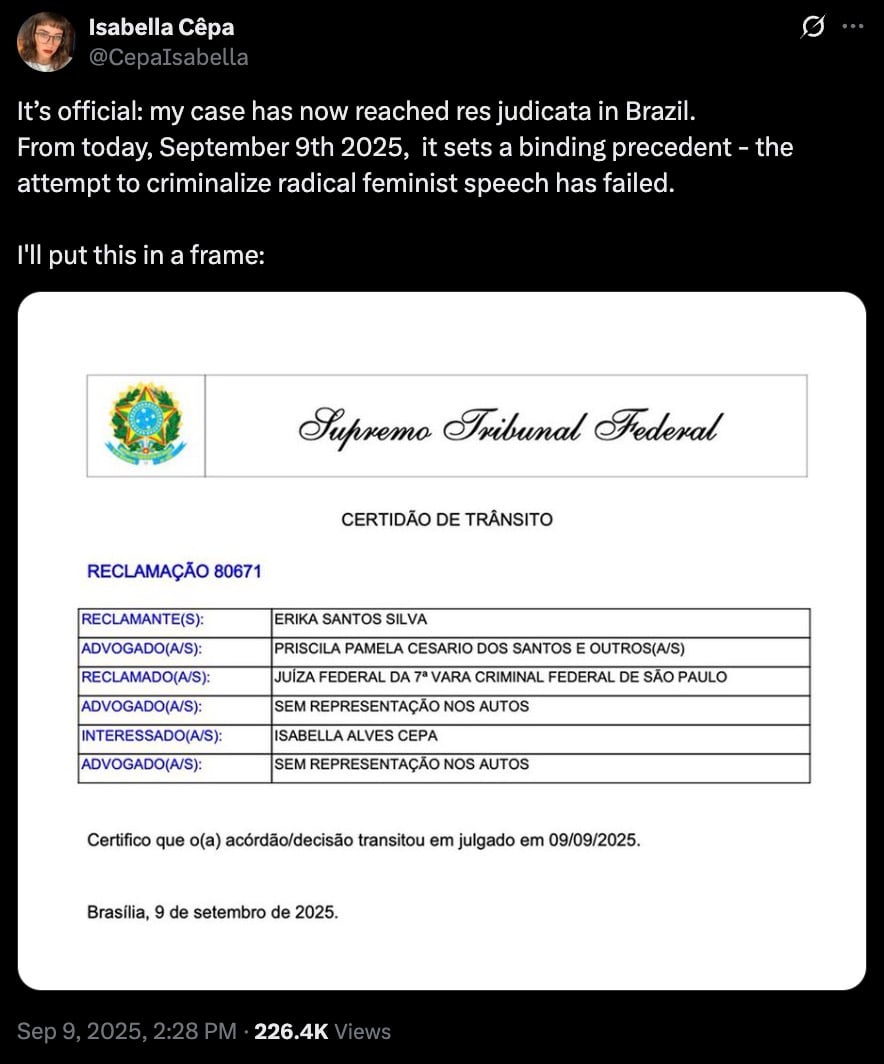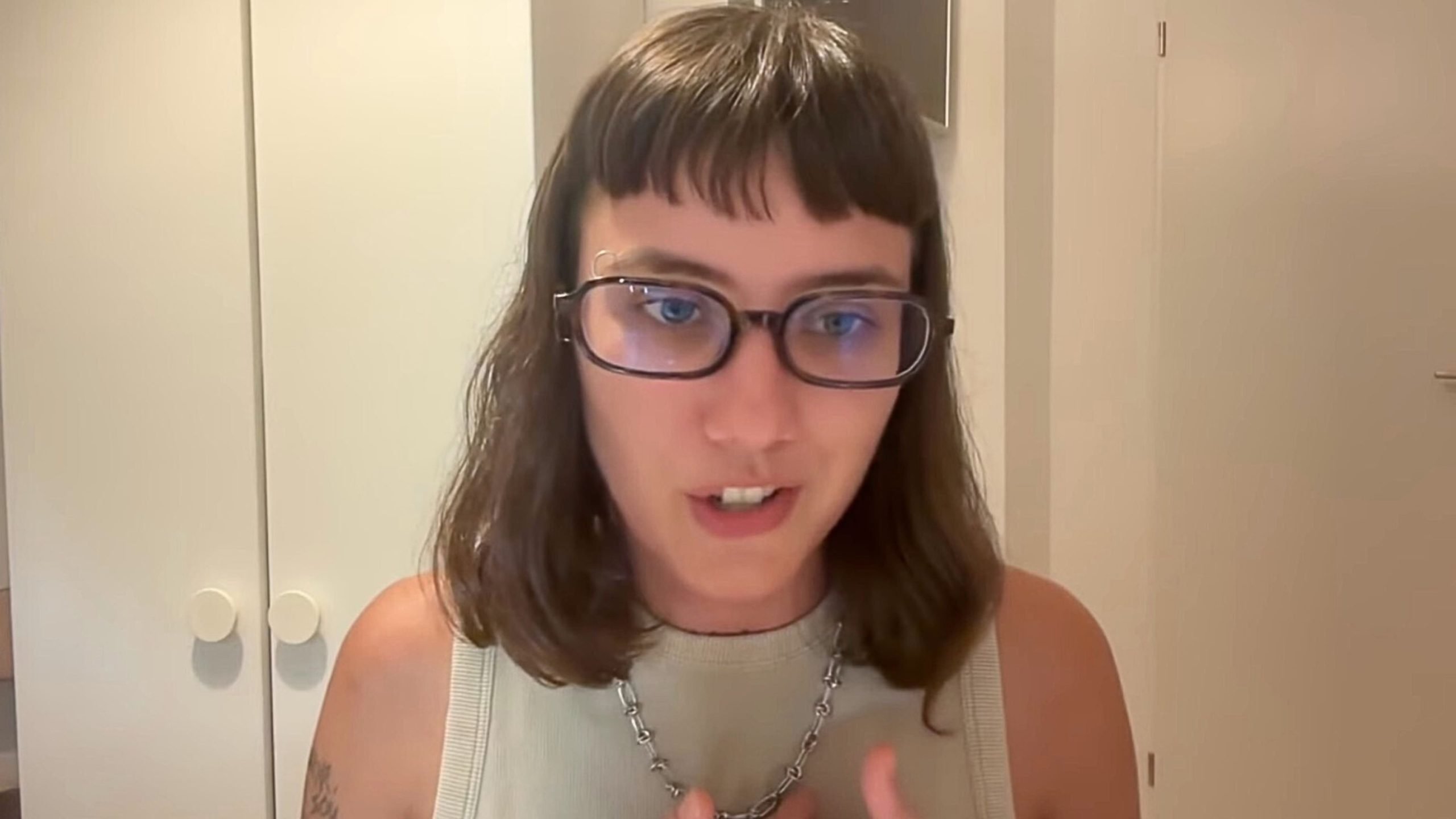Isabella Cêpa, a Brazilian feminist and outspoken women’s rights advocate, has defeated a legal campaign that once threatened her with up to 25 years in prison.
Brazil’s Supreme Federal Court issued a final, non-appealable ruling in her favor, concluding a high-profile case that began with a brief social media video and evolved into one of the most significant free speech battles in Brazil’s modern history.
After years of legal pressure and public silence from Brazilian institutions, Cêpa has not only escaped prosecution but has been granted full refugee protections in Europe.
The move marks the first time a Brazilian citizen has received asylum abroad for being persecuted over gender-critical beliefs. Her case has now become a legal precedent, one that free speech advocates say could help protect others facing similar repression.

The conflict began in 2020 when Erika Hilton, a politician who identifies as a woman, won a city council seat in São Paulo. The media widely described Hilton as “the most voted woman” in the city. This caught Cêpa’s attention and led to her making a video that she posted online.
“At the time I didn’t even know who this person was. I just saw a headline on an Instagram page celebrating that ‘the most voted woman in São Paulo is a transwoman,’” Cêpa said.
“Then, I shared a video with my followers saying I was disappointed to hear that the most voted-for woman in São Paulo, later found out that it was in the entire country, was a man.”
That single statement triggered a criminal complaint. Hilton reported her to police, which led to an investigation. In early 2022, authorities summoned Cêpa for questioning.
She was unaware of the extent of the charges until a major newspaper contacted her for comment.
It was only through that journalist that she learned prosecutors had charged her with five counts of “social racism,” a category invented by the Supreme Federal Court in 2019 to criminalize discrimination against the “LGBTQ community” under Brazil’s race-based hate crime laws.
Investigators reportedly combed through Cêpa’s social media history to gather posts that might be labeled “transphobic.” These were used to build a case portraying her as a repeat offender. The potential sentence added up to 25 years in prison.
While her legal fight in Brazil is now over, her victory has implications far beyond her personal safety. Cêpa’s successful asylum application may now serve as a blueprint for others whose gender-critical views place them at odds with increasingly aggressive speech laws.










